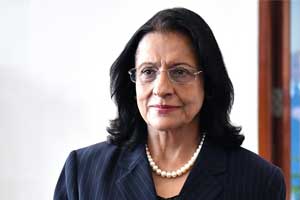- Home
- Medical news & Guidelines
- Anesthesiology
- Cardiology and CTVS
- Critical Care
- Dentistry
- Dermatology
- Diabetes and Endocrinology
- ENT
- Gastroenterology
- Medicine
- Nephrology
- Neurology
- Obstretics-Gynaecology
- Oncology
- Ophthalmology
- Orthopaedics
- Pediatrics-Neonatology
- Psychiatry
- Pulmonology
- Radiology
- Surgery
- Urology
- Laboratory Medicine
- Diet
- Nursing
- Paramedical
- Physiotherapy
- Health news
- Fact Check
- Bone Health Fact Check
- Brain Health Fact Check
- Cancer Related Fact Check
- Child Care Fact Check
- Dental and oral health fact check
- Diabetes and metabolic health fact check
- Diet and Nutrition Fact Check
- Eye and ENT Care Fact Check
- Fitness fact check
- Gut health fact check
- Heart health fact check
- Kidney health fact check
- Medical education fact check
- Men's health fact check
- Respiratory fact check
- Skin and hair care fact check
- Vaccine and Immunization fact check
- Women's health fact check
- AYUSH
- State News
- Andaman and Nicobar Islands
- Andhra Pradesh
- Arunachal Pradesh
- Assam
- Bihar
- Chandigarh
- Chattisgarh
- Dadra and Nagar Haveli
- Daman and Diu
- Delhi
- Goa
- Gujarat
- Haryana
- Himachal Pradesh
- Jammu & Kashmir
- Jharkhand
- Karnataka
- Kerala
- Ladakh
- Lakshadweep
- Madhya Pradesh
- Maharashtra
- Manipur
- Meghalaya
- Mizoram
- Nagaland
- Odisha
- Puducherry
- Punjab
- Rajasthan
- Sikkim
- Tamil Nadu
- Telangana
- Tripura
- Uttar Pradesh
- Uttrakhand
- West Bengal
- Medical Education
- Industry
Step up efforts to eliminate measles outbreak: WHO

While rubella causes irreversible birth defects, measles is a killer disease.
New Delhi: Amidst increasing cases and outbreaks of measles globally, the WHO has recently called upon countries in its South-East Asia Region to accelerate efforts to ensure that everyone, everywhere receives the lifesaving benefits of immunisation.
"Governments, communities and health workers must focus on optimising the benefits of immunisation at all ages to prevent life-threatening and debilitating diseases. Vaccines work and save lives, we must ensure that everyone, everywhere is benefitted," said Poonam Khetrapal Singh, Regional Director WHO South-East Asia, during the ongoing World Immunization Week.
Preliminary measles surveillance data released recently indicates an almost 300 per cent increase in measles cases globally in the first three months of this year as compared to the same period in 2018.
In the WHO South-East Asia Region, the increase in measles cases in the same period is estimated to be around 40 per cent.
An estimated 169 million children missed out on the first dose of the measles vaccine between 2010 and 2017, or 21.1 million children a year on an average, the UNICEF said Thursday.
Widening pockets of unvaccinated children have created a pathway to the measles outbreak around the world, it said.
"These are fresh challenges for countries and communities. We must learn from our successes in polio eradication and maternal and neonatal tetanus elimination from the region. We need to combat these diseases on a war footing to prevent illness and save precious lives," Khetrapal Singh said.
Measles elimination and rubella control has been a flagship priority programme in the WHO South-East Asia Region since 2014.
While rubella causes irreversible birth defects, measles is a killer disease. It is one of the most infectious virus known to mankind and can lead to diarrhoea, pneumonia, malnutrition in children and young adults and can even lead to deaths in all age groups.
Since 2014, of the 11 member countries, four -- Bhutan, Maldives, DPR Korea and Timor-Leste -- have eliminated measles and six -- Bangladesh, Bhutan, Maldives, Nepal, Sri Lanka and Timor-Leste -- have controlled rubella. Measles-related deaths have decreased by 23 per cent in the region in the last five years, the global health body said in a statement.
All member countries have introduced two doses of measles-containing vaccines, while ten countries have also introduced vaccines against rubella in their routine immunisation programmes.
Robust immunisation systems are needed to harness vaccination's full potential so that every child in the region is healthy, happy and has full protection against all vaccine-preventable diseases, the regional director said.
World Immunization Week, celebrated in the last week of April every year, aims to promote the use of vaccines to protect people of all ages against disease. This year's theme is "Protected Together Vaccines Work".
Medical Dialogues Bureau consists of a team of passionate medical/scientific writers, led by doctors and healthcare researchers. Our team efforts to bring you updated and timely news about the important happenings of the medical and healthcare sector. Our editorial team can be reached at editorial@medicaldialogues.in.


